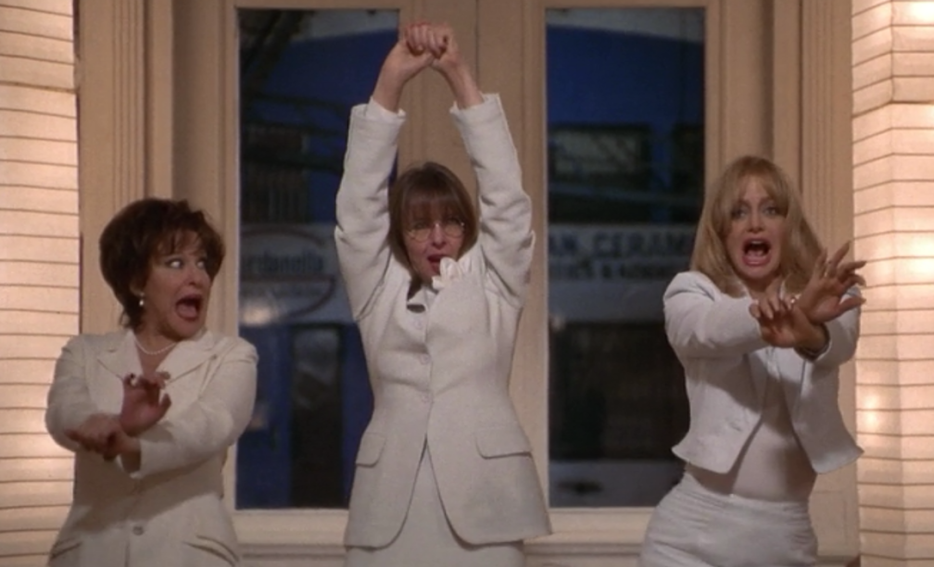Last year, my husband abruptly left me for another woman—moving across the country and very publicly crafting a new life that didn’t include me. Predictably, I was devastated.
He’d confessed he was in love with someone else the day after he’d returned from a too-long business trip. I’ve since tried to erase that scene from my mind, but it’s stubbornly stuck, saved somewhere in the coils of my brain for whenever I want to recall it, which isn’t often. Him, mostly naked because we’ve just had welcome-back sex, hugging a pillow I’ve had since university. His arms have always struck me as too short, like a T-Rex, pinned absurdly on a big, barrel-chested body. This is what I remember with Technicolor clarity: that his arms seemed all wrong. His face wasn’t right either: pulled down at the corners, like a fish caught on a hook, an old woman’s ear heavy with jewelry, a broken ventriloquist’s puppet.
Surely, it couldn’t have been him talking.
The next day, my body was the Grand Canyon, vast and hollowed out. My mind obsessed over a dead narrative: wife, mother. Me, who was never quite sure I wanted to be a wife. Me, who hadn’t decided whether or not I wanted children. Me, undone. With him gone, who am I? With him gone, I’ll never have a baby. With him gone. As if I’d wanted one. As if he was my only chance to become whatever I was supposed to be.
Maybe I wasn’t the canyon. Maybe I was the hole in the sandbox from Robert Munsch’s Murmel, Murmel, Murmel, only impossibly deeper and assuredly empty. No babies here. No story. No life. Gone. Gone. Gone. Maybe I was both. Or maybe I was a thunderstorm—loudly inconsolable, pelting tears, taking up more space than I ever had before.
The day after that one, I bought new pillows.
For a week, my parents and my friends watched as I pushed food around my plate, creating mountains and rivers and roads, a kid again. They brought me take-out, wine, water, chocolate, placed it before me, said nothing as it piled up like offerings before a terrible god, untouched. They nodded, satisfied, if I ate one bite. Their bodies made cradles, willing me to sleep. I started to imagine this would go on forever. That I would wake up every morning feeling more feelings than one person could possibly contain. That I would wake up feeling nothing for the rest of my life. That I would never pull my shit together. This was the new me—at least until I was ready for the prescribed haircut and killer makeover.
I mean, that’s what happens in the movies.
Yet, there’s something about a shocking and cruel separation that forces you to confront the ugliness of a marriage. I was, in those first weeks, desperate for my husband to stay, madly Googling marriage crisis counsellors. I even cajoled him into calling one and booking an appointment. But, as I stared at the step-by-step explainer of my upcoming session, thrumming with urgent hope that it would make him want me again, I started to wonder what my life would look like if I succeeded and saved my marriage. Would I be saving myself, too?
Being un-wifed is supposed to be the worst thing that ever happened to us as adult women, and society expects us to act accordingly.
I’d forgiven him before. This was never supposed to happen again infinite times. I was so scared to confront it, the truth. If we worked through this latest infidelity, I knew the exquisite, loving calm would turn eventually, and all at once—another betrayal topsy-turvying my world, just like it had so many times before. And every time I forgave him, I ate the responsibility for my pain like a glutton, until it was all I could taste.
In the 1950s, a counselor at the American Institute of Family Relations told a woman, after her husband had an affair, that it was her fault. Far from uncommon, this was accepted wisdom. “We have found in our experience,” the counselor admonished, “that when a husband leaves his home, he may be seeking refuge from an unpleasant environment.” He (I’m just assuming the counselor was a he) went on: “Could you have stressed your contribution to your marriage in such a manner to have belittled the part he has played and thus made him uncomfortable in his presence?” In other words: What have you done wrong? Half a century on, it’s a question we’re still supposed to ponder, possibly forever. How archaic.
How many ways would I have to contort to fit until nobody would ever recognize me, least of all myself? I was already like a wacky Picasso. Soon, I wouldn’t even resemble a person-shape. But here was my chance to stop it. It was terrible and difficult and I didn’t want to confront it, but there it was: my divorce could save me.
I called off our marriage intervention. And, suddenly, my grief just vaporized. Relief settled into place. I realized I was grieving something that didn’t deserve much sadness. I was, if you look at it another way, crying over the death of that jerk-y uncle nobody really liked, anyway. When somebody dies, we eulogize the good parts and forget the rest. It’s what we’re expected to do. But what happens when we flip the playbook? When we admit, yeah, dear ol’ Uncle Bob was actually a dear ol’ jackass? Like, good riddance Bob. Good riddance, marriage.
The buoyancy was so alarming that I fearfully asked my therapist whether there was something wrong with me. I worried I’d misplaced my emotions without realizing it, like I was always doing with my house keys or my favourite red lipstick. Maybe I’d unintentionally killed them like every plant I’d ever owned. Ever. She looked at me, fretful, and wisely, gently suggested that maybe my marriage wasn’t as happy as I’d always pretended.
After nearly eight years together, this last betrayal allowed me to finally excavate the truths of my relationship. Step by steady step, I began to shed my “wife” identity. Let me tell you, some days I wish I could have done it earlier, on my own. Most days, though, I’m just thankful that I did it at all. Because I realized I had that gnawing question all wrong. It wasn’t “With him gone, who am I?” But a small edit: “With him gone, who can I be?”
After the first month or so, I could honestly answer “I’m good” to anyone who asked, eyes full of concern like I’d explode on them in bitterness. But I didn’t feel bitter. Instead, I felt happy. Shaky, sure. But hopeful. In charge. I wasn’t putting on a brave face. I wasn’t fakin’ it ’til I was makin’ it. For the first time in a very long time, I actually felt brave. Except, nobody believed me.
As women scorned, we’re expected to follow a certain narrative when our husbands leave us, especially when they do so dramatically: despair, bitterness, obsessiveness, self-blame, loss of self worth, maybe drinking and one-night rebounds. Lots of ice cream. There are even rules about how long it should take us to get over divorce—and it’s a depressingly long time, by the way. One U.K. study declared in 2010 that it takes, on average, 17 months and 26 days. It takes slightly less time, the study says, until divorcées are ready to date again. I’ve heard that we should cleave the length of our relationship in half; the result is an expected grieving period. It doesn’t matter how wonderful or awful our marriages were: Being un-wifed is supposed to be the worst thing that ever happened to us as adult women, and society expects us to act accordingly. If we don’t, we’re lying. We’re cold. We’re in denial. We’re unnatural.
Nearly every single person I spoke to about my post-relationship optimism—from those who knew far too much detail about my dead marriage to those who knew nothing at all—would fix me with a judge’s stare: Are you sure? It’s okay to be sad. YOUR MARRIAGE ENDED, FOR GOD'S SAKE!
My grief never made them uncomfortable, but my happiness did. Everywhere I turned, people prodded me for signs of depression and anger, sure it must lurk somewhere inside me. If I seemed all right, they surmised, I was feigning it. My parents refused to take down my wedding photos, protesting that it was okay to remember how beautiful I looked on “my happy day.” When I hesitantly mentioned my therapist’s push for me to move on, I was sure I’d swallowed a malfunctioning Babel fish—because everyone reacted as if I’d told them I wanted to buy a velour tracksuit and maybe go coffin shopping . But you can’t! It’s too soon! The horror! Even my lawyer seemed surprised that my only instructions were to untether me, ASAP.
*
The same week I signed my settlement papers, I watched my first divorce movie—a classic of the genre, The First Wives’ Club. I adore Goldie Hawn and Bette Midler. Ditto Diane Keaton. I aspire to pull off men’s wear as spectacularly as she does. But I absolutely hated the movie. It’s all the acceptable women’s divorce narratives tumbled into 103 minutes. The wives exact gleeful revenge and viewers are meant to believe it’s fantasy fulfillment for every jilted woman.
We’re sold a story of empowerment. Underneath, though, it’s the same dynamics: women who are defined by their relationship to men. Their exes dictate their weaknesses, that’s obvious, but also their strengths, less obvious. Interests, personalities, quirks—it’s all based on how they interact, or not, with the dudes in their lives. Even Keaton’s daughter, who is a lesbian, has only one motivation as a character: disgust for her philandering dad.
I could have executed elaborate plans to win him back, professed love, performed grief as a spectacle.
At the end of the movie, we’re given some feminist scraps: the women blackmail their ex-hubbies into paying for an abused women’s shelter. It’s named after their friend who catapulted off her balcony when her own husband announced his decision to leave her for a younger woman (this is presented as a tragic but logical response to such news). Breadcrumbs of freedom.
We also learn a bunch of other things we’re supposed to be happy about. Midler’s character is on her way to reconciling with her ex-husband, a man who left her for a young blonde, is a criminal, and possesses no redeeming qualities whatsoever. Hawn’s character is dating an unknown younger actor (oooh, stereotype reversal!) and has therefore, apparently, re-established her worth as an attractive commodity. Keaton fares the best of them all, I think. Once meek, she finds her voice, buys out her husband’s company (for revenge, not because she wants a career), and finds independence doing … well, I’m not sure what exactly. It’s unclear. But something.
*
In the months following my separation, well-intentioned friends encouraged a single gal lifestyle scripted by Hollywood. They wanted me to sleep my way through Toronto. Go out for cosmos. Debut bangs. Buy racy lingerie. Use physical reinvention and casual sex as a salve. Even people I didn’t know very well seemed dismayed when I refused to Google my erstwhile husband’s new beau. Confusion abounded that I knew nothing about her and didn’t want to, not what she looked like, not even her name. Nobody believed that I didn’t track his every move—that I’d let him slip away so easily, water off oil.
Of course, as they all knew, I’m a journalist. I could have found out. I don’t think anybody would have been horrified if I’d actually done something truly alarming, like stalking them or wasting entire days bawling over their Facebook photos. When I shrugged off speculation on his new life, more than one friend called me “enlightened.” But the looks on their faces said “sadly in denial.” Or, perhaps, “batshit crazy.” When I seemed too blasé, they peppered me with fear. I was newly home alone, but since my ex refused to turn in his house key to our rented apartment and I couldn’t legally change the locks, I was advised to sleep with a chair wedged under my front door. If I didn’t call a friend or family member every night to confirm my safety and general vitality, they phoned non-stop until I picked up. Once, buried under a deluge of deadlines, I forgot to answer a friend’s text and received a panicked e-mail asking if my phone had been “compromised.”
It’s okay to be angry. We need more angry women.
I mean, sure, I could have done a lot of things. I could have plotted revenge, called in debts, driven him out of town, hacked his email. I could have told everyone every detail. I could have executed elaborate plans to win him back, professed love, performed grief as a spectacle. I could have gone to court, haggled over every penny, nailed him to the wall. I could have burned every picture, thrown out every knick knack, left closets full of plaid shirts on the porch. Turned the debris of my marriage out for everybody to see. How exhausting.
I could have let it all consume me, made my divorce everything. I could have. It seemed to be what everyone expected: an unfurling of my sanity for the prescribed 17 months and 26 days. But I didn’t want to.
*
It’s okay to be sad when a marriage ends. I’m not advocating that women embrace politeness, Stepford smiles and funhouse cheer. It’s okay to be angry. We need more angry women. The world would be a better place, I think, if more women expressed their rage.
I was angry about so many things—just not the things everyone seemed to expect. I was angry that I had become so fearful. I was angry that I had fit myself into smaller and smaller boxes, until I had become a speck of a person. I was angry that it had been so easy to make me feel discarded. I was angry that it was so normal to meet women like me—women whose identities had become unmoored when their husbands traded in one life for another. I was angry that, as feminists, we’d won the right to divorce, but not the right to be happy about it. That, to move forward, everyone seemed to expect us to erase (or eviscerate) our exes, when really we just need to fill ourselves in.
I can think of a bazillion better things to do with my time than debating what my husband’s affair says about my worth. It’s time we start forging a new narrative that allows women to claim power over their identities, and their grief. I didn’t initiate my divorce (though it’s worth mentioning nearly 70 percent of women do). It’s true that I didn’t want it. But as strange as it sounds to many people, I’m happy it happened. When my divorce papers arrive in the mail next year, I’ll sign them with a champagne toast. I’m already dreaming about it—a moment that’s Christmas and my birthday and the first day of spring, but somehow better. It could be a scene from a movie.






